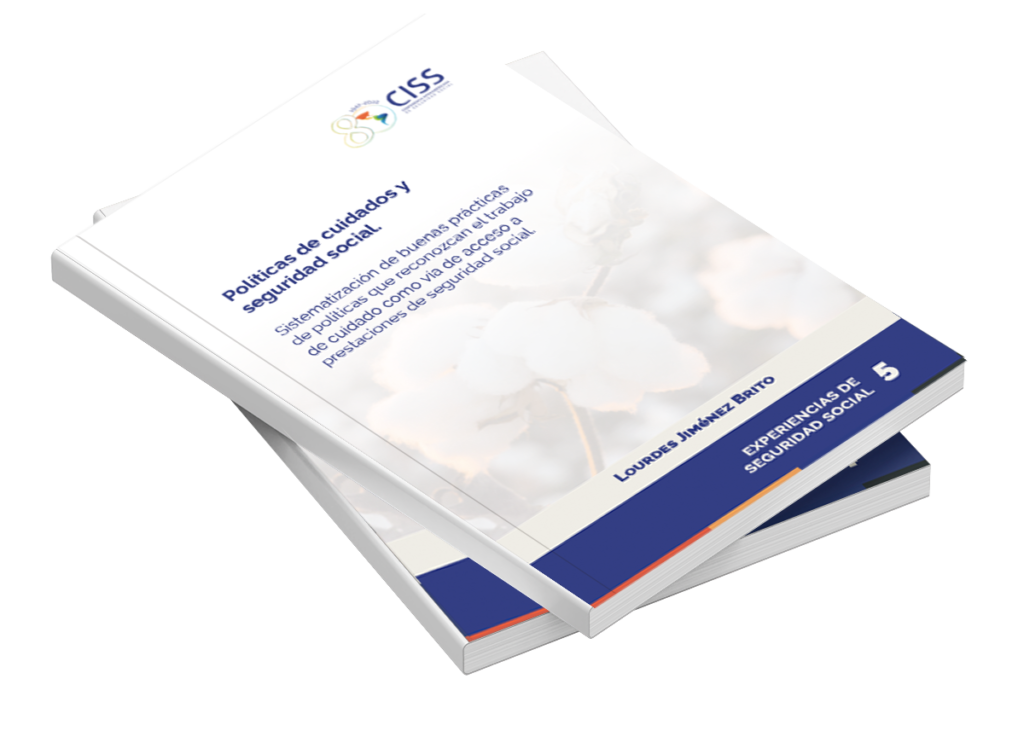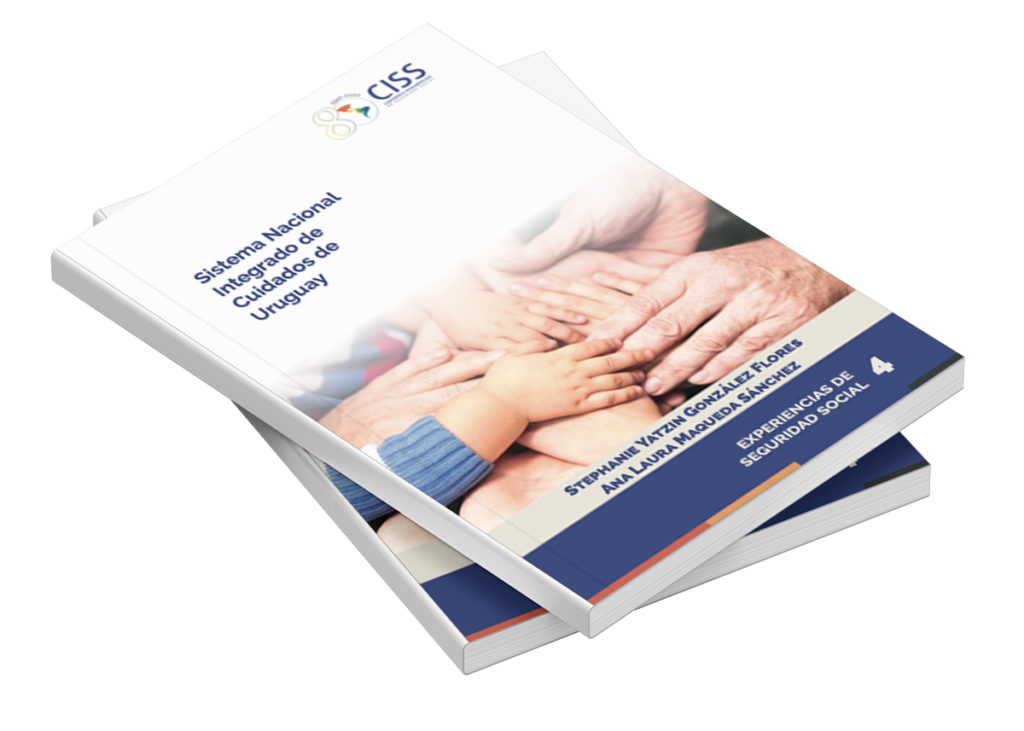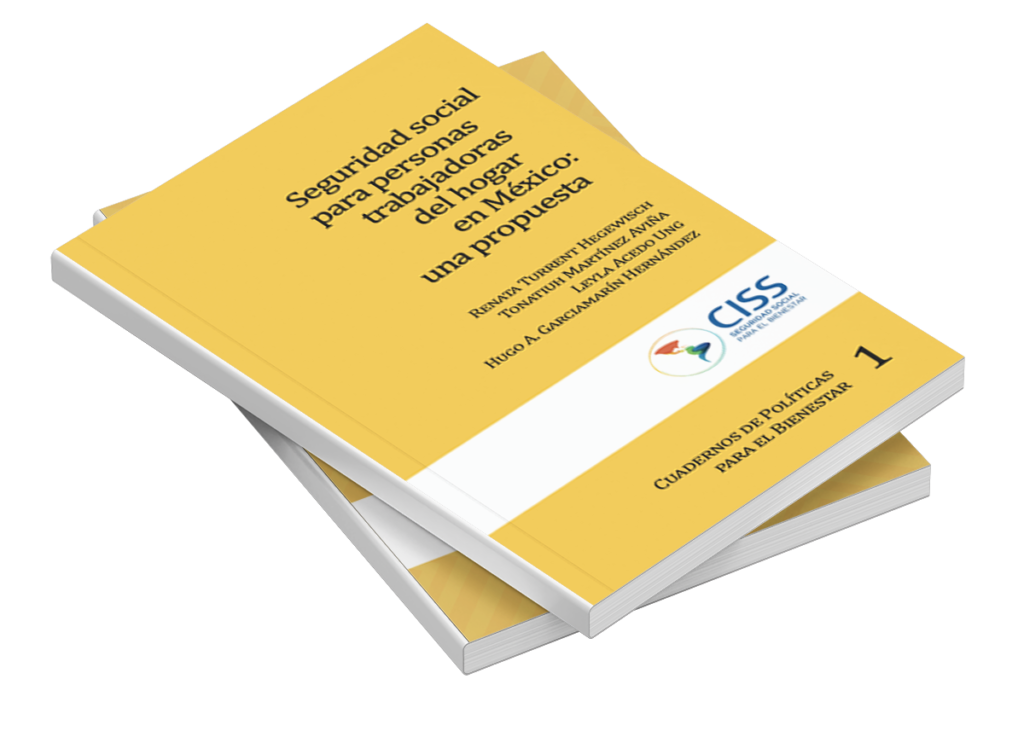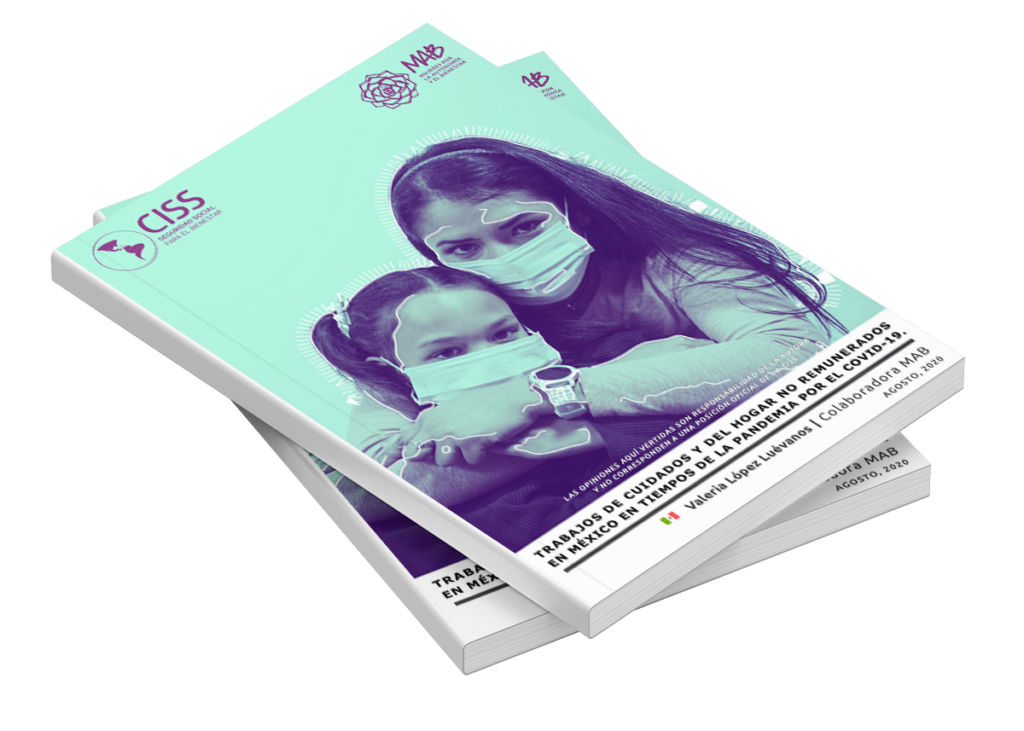Observatory on the Universalization of Social Security:
Domestic Workers
Scroll down to learn more about this initiative and other materials from the CISS on the subject.
Data site
For the moment, the documents are only available in Spanish
Browsing tips:
You can view all countries simultaneously, only one, or a custom set of countries by pressing CTRL while selecting the dropdown list of the Country filter.
The dashboard contains data from 2010 to 2023. You can select a specific timeframe of years by entering the years in the boxes, as well as sliding the bar below them.
To view data for a particular year, you must enter the same number in both boxes, or place both ends of the bar at the same point on the line.
Information sources
The data was obtained from surveys conducted by the statistical institutes or offices of the different countries. More details here.
About this site
Domestic work is an activity aimed at sustaining people’s lives through domestic and caregiving tasks, both paid and unpaid. In most cases, this work is carried out by women who often have low levels of formal education and characteristics that expose them to multiple types of discrimination (poverty, living in peripheral areas, being migrants, or belonging to indigenous or racialized populations). Because of this, they face constant violations of their rights and high levels of exclusion from social security.
The CISS has launched this observatory with the aim of generating and disseminating evidence on the access conditions to social security for paid domestic workers, in order to guide informed public decision-making. The data presented here was obtained through household surveys implemented in the different countries of the Americas.
In addition to the data site, we offer a variety of documents developed by the CISS on the subject.
Publications
For the moment, the documents are only available in Spanish
Infographics
Convention 189 of the ILO in the Americas
The Convention concerning decent work for domestic workers, 2011 (No. 189), of the International Labour Organization (ILO), is the most important international legal instrument regarding the regulation of paid domestic work. It establishes standards to ensure that people engaged in this activity have access to the same rights as those working in other sectors.
We enlist here the countries in the Americas that have ratified this convention and the date on which they did so. Likewise, we invite the rest of the American states to ratify this instrument.
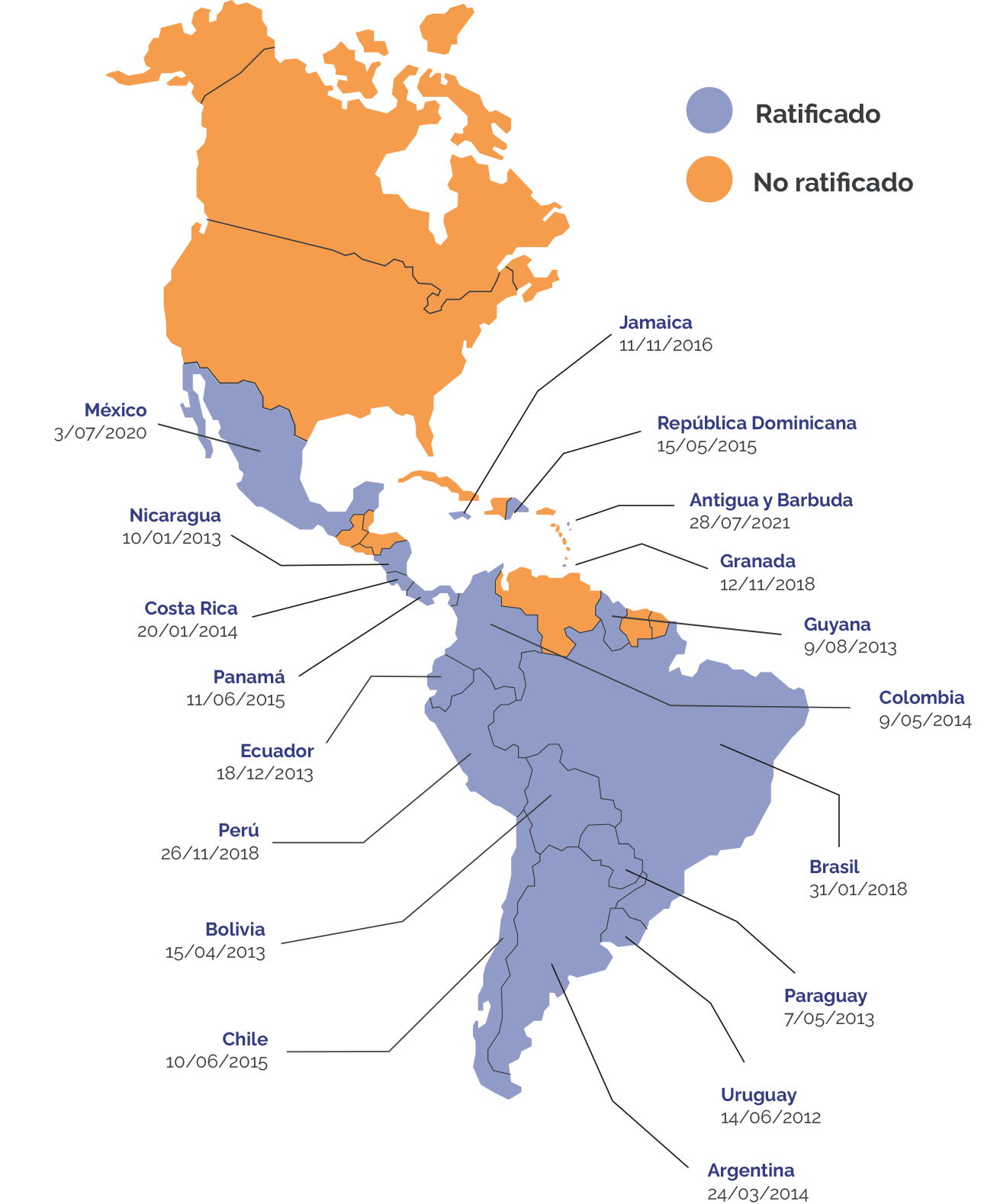
*Information revised up to January 2024
Regulation of paid domestic work in national legislations in the Americas
There is a heterogeneous progress in the regulation of paid domestic work in the Americas. Some countries have legislated it through general regulations applicable to all employment relationships, while others have issued specific laws in the matter. Here are some examples of how this activity has been regulated in the Americas.

Antigua y Barbuda
- The Antigua and Barbuda Labour Code.
- Ley N° 26.844 de 2013: Régimen Especial de Contrato de Trabajo para el Personal de Casas Particulares.
- Ley N° 20.744 de 1976: Ley de Contrato de Trabajo.
- Ley N° 24.714 de 1996: Régimen de Asignaciones Familiares.
- Ley N° 25.239 de 1999: Título XVII, Régimen Especial de Seguridad Social para Empleados del Servicio Doméstico RESSESD.
- Ley N° 26.063 de 2005: Recursos de la Seguridad Social.

Argentina

Bolivia
- Ley N° 2.450 de 2003: Ley de Regulación del Trabajo Asalariado del Hogar.
- Decreto Supremo N° 4.589 de 2021.
- Reglamenta afiliación de trabajadoras asalariadas del hogar a la Caja Nacional de Salud.
- Enmienda Constitucional N° 72 de 2013.
- Ley Complementaria N° 150 de 2015.
- Ley N° 13.467 Reforma Laboral de 2017.

Brasil

Chile
- Código de Trabajo (Libro I, título II, De los contratos especiales, capítulo V), últimas reformas implementadas por la Ley N° 20.786 de 2014.
- Decreto N° 721 de abril de 2013: afiliación de las personas trabajadoras del hogar a las Cajas de Compensación Familiar.
- Decreto N° 2616 de 2013: regula la cotización a la seguridad social de las trabajadoras y trabajadores dependientes que laboren por períodos inferiores a un mes en los Sistemas de Pensiones, Riesgos Laborales y Subsidio Familiar, con el fin de fomentar la formalización laboral.
- Ley N° 1.788 de 2016: garantiza el pago de la prima para personas trabajadoras domésticas.
- Ley N° 1.822 de 2017: por la que se incentiva la adecuada atención de la primera infancia.
- Ley N° 1.636 de 2013: Mecanismo de Protección al cesante.
- Código Sustantivo del Trabajo (CST).
- Ley N° 1.955 de 2019: Articulo 193 Creación del Piso de Protección Social.
- Decreto Reglamentario 1.174 de 2020: Reglamenta el Piso de Protección Social.
- Decreto 616 de 2022: Contribución Solidaria al Régimen Subsidiado y Piso de Protección Social; Beneficios en Maternidad.

Colombia

Costa Rica
- Ley N° 7.983 de 2001: Ley relativa a la Protección de los Trabajadores.
- Ley N° 8726 de 2009: Ley del trabajo doméstico remunerado.
- Reglamento Nº 8.914: Reglamento para la inscripción de patronos y el aseguramiento contributivo de las trabajadoras domésticas.
- Ley N° 116 de 2013: Código de Trabajo.
- Resolución N° 33 de 6 de septiembre de 2011, de Ministerio de Trabajo y Seguridad Social: establece el Reglamento del ejercicio del trabajo por cuenta propia, que en su Anexo N° 1, recoge entre las actividades autorizadas para el ejercicio del trabajo por cuenta propia, como número 79, al Personal doméstico; y como número 30, al Cuidador de enfermos, personas con discapacidad y ancianos.
- Resolución N° 345 de 2021: aprueba las normas para la tributación y el tratamiento de precios y tarifas para las y los trabajadores por cuenta propia.
- Decreto Ley N° 356 de 2018: Sobre el Ejercicio del Trabajo por Cuenta Propia.
- Decreto Ley N° 44 de 2021: Sobre el Ejercicio del Trabajo por Cuenta Propia.
- Decreto Ley N° 45 de 2021: De las Contravenciones Personales en el Ejercicio del Trabajo por Cuenta Propia.
- Decreto Ley N° 48 de 2021: Del Régimen Especial de Seguridad Social para los trabajadores por cuenta propia, los socios de las cooperativas no agropecuarias y de las micro, pequeñas y medianas empresas privadas.
- Decreto Ley N° 56 de 2021: De la maternidad de la trabajadora y la responsabilidad de las familias.

Cuba

Ecuador
- Código de Trabajo de 2005.
- Ley de Registro 461 de 2001; Ley de Seguridad Social.
- Ley N° 00 de 2012: Ley Orgánica Para La Defensa De Los Derechos Laborales.
- Ley N° 0 de 2015: Ley Orgánica Justicia Laboral Y Reconocimiento Del Trabajo En Hogar.
- Resolución N° C.D. 535 de 2017: Reforma Integral al Reglamento Orgánico Funcional del Instituto Ecuatoriano de Seguridad Social.
- Resolución N° C.D. 625 de 2021: Reglamento de Aseguramiento, Recaudación y Gestión de Cartera del Instituto Ecuatoriano de Seguridad Social.
- Código de Trabajo, 1972: Del Trabajo Sujeto a Regímenes Especiales Capítulo III.
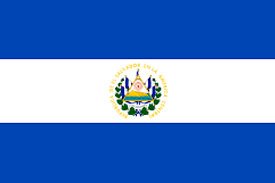
El Salvador

Guatemala
- Código de Trabajo, Decreto 1.441 del Congreso de la República de Guatemala, Capítulo Cuarto, Trabajo sujeto a regímenes especiales (Artículos 161 a 166).
- Acuerdo Gubernativo N° 278-2021 Salario Mínimo para el año 2022.
- Acuerdo número 12.35 de la Junta Directiva del Instituto Guatemalteco de Seguridad Social (IGSS) Reglamento del Programa Especial de Protección para Trabajadoras de casa Particular (PRECAPI).
- Decreto Legislativo N° 189-59 de 1959: Código del trabajo.
- Decreto Legislativo N° 103-71 de 1971: Ley del Salario Mínimo.
- Decreto Legislativo N° 56215 de 2015: Ley Marco de Protección Social.
- Ley del Seguro Social.
- Acuerdo N° 003-JD de 2005: Reglamento General de la Ley de Seguro Social.
- Acuerdo N° 006-Jd de 2008: Reglamento del Régimen especial de Afiliación progresiva de los trabajadores domésticos.

Honduras

México
- Ley Federal del Trabajo (LFT). Reforma DOF 02-07-2019, título Sexto, capítulo XIII, Personas Trabajadoras del Hogar, artículos 331 a 343.
- Ley del Seguro Social (LSS). Reforma DOF 02-07-2019 por la que se deroga en el Art. 13 su pertenencia con carácter voluntario y se incorpora las personas trabajadoras del hogar como sujetos de aseguramiento en el régimen obligatorio Art. 12.
- Acuerdo Consejo Técnico IMSS, julio 2020, por el que se aprueban las Reglas de carácter general de la Prueba Piloto Fase II para la incorporación de las personas trabajadoras del hogar al Régimen Obligatorio del Seguro Social.
- Sentencia del 5 de diciembre 2018 de la Suprema Corte de Justicia de la Nación, en Amparo Directo 9/2018.
- Ley N° 185 de 1996: Código de Trabajo. Capítulo I, dentro de la categoría Condiciones Especiales de Trabajo.
- Ley N° 666 de 2008: Ley de reformas al Título I del Código del Trabajo.

Nicaragua

Panamá
- Decreto de Gabinete N° 252 de 1971: Código del Trabajo, Título VII. Contratos especiales, Capítulo I, sobre el trabajo doméstico.
- Ley N° 44 de 1995: Reformas al Código del Trabajo.
- Ley N° 5.407 de 2015: Ley del Trabajo Doméstico.
- Resolución del Ministerio de Trabajo, Empleo y Seguridad Social (MTESS) N° 233 de 2016: Reglamento de la Ley N° 5.407/2015 “Del Trabajo Doméstico”.
- Ley N° 338 de 2019: Modificación del artículo 10 de la Ley N° 5407 para igualar la retribución mínima a la vigente para el resto de las personas trabajadoras, establecido el derecho a percibir el salario mínimo legal para actividades diversas no especificadas.
- Decreto del Poder Ejecutivo N° 6.339 de 2019: Regulación del empleo a tiempo parcial.
- Resolución del MTESS N° 2.660 de 2019: Regulación de la inscripción de los trabajadores domésticos al Instituto de Previsión Social bajo la modalidad de empleo parcial.
- Ley N° 6.339 de 2019, “Que regula el empleo a tiempo parcial”.
- Ley N° 1.680 de 2001: Código de la Niñez y la Adolescencia.
- Ley N° 375 de 1956 y sus modificaciones posteriores: Reguladora del Instituto de Previsión Social (IPS).
- Resolución C.A, N° 100-006/2015, “por la que se aprueba el reglamento y formularios para la inscripción patronal y actualización de datos de los empleadores del Seguro Doméstico y se autoriza el cobro de aportes, conforme a la Ley N° 5.407/2015, Del Trabajo Doméstico”.
- Resolución N° 039-015/19.
- Ley Nº 6338 / Modifica el artículo 10 de la Ley Y N° 5407/15.

Paraguay

Perú
- Ley 31.047 de 2020: Ley de las trabajadoras y trabajadores del hogar.
- Decreto Supremo 009-2021-TR de 2021: Reglamento de Ley de trabajadoras y trabajadores del hogar.
- Ley 26.790 de 1997: Ley de Modernización de la seguridad social en salud.
- Ley N° 1.692 de 1992: Código del Trabajo; Ley N° 8.701 de 2001: Ley de Seguridad Social.

República Dominicana

Uruguay
- Decreto Ley N° 1.447 de 1975: Administración de Seguros Sociales por enfermedad.
- Ley N° 15.180 de 1981: Subsidio por desempleo forzoso.
- Ley N° 16.713 de 1995: Crea sistema previsional mixto.
- Ley N° 19.161 de 2013: Regula subsidios por maternidad y paternidad.
- Ley N° 18.211 de 2017: Sistema Nacional Integrado de Salud.
- Ley N° 18.065 de 2006: Ley de Regulación del Trabajo doméstico.
- Decreto N° 224/007 de 2007: Reglamento de la Ley de Regulación del Trabajo doméstico.
*Information revised up to January 2024
Timeline of ratifications of C-189 in the Americas
Still not ratified:

Bahamas

Barbados
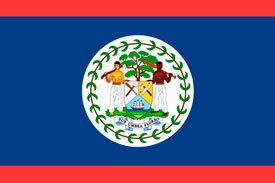
Belice

Canadá

Cuba
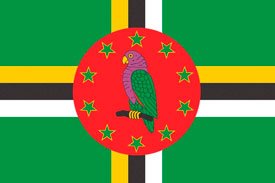
Dominica
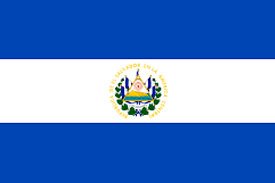
El Salvador

Estados Unidos de América

Guatemala

Haití

Honduras

San Cristóbal y Nieves

San Vicente y las Granadinas

Santa Lucía

Surinam

Trinidad y Tobago

Venezuela
*Information revised up to January 2024
Videos
In this site, you will find data, research, and events conducted by the ICSS for these populations.

